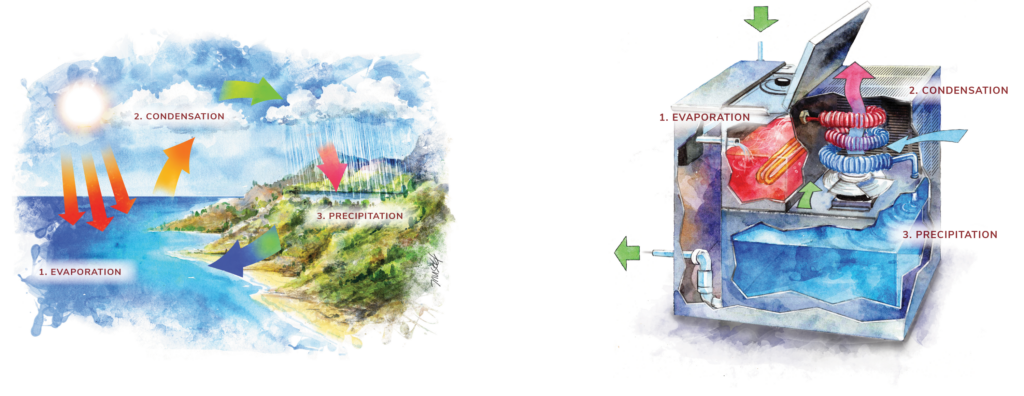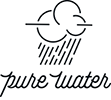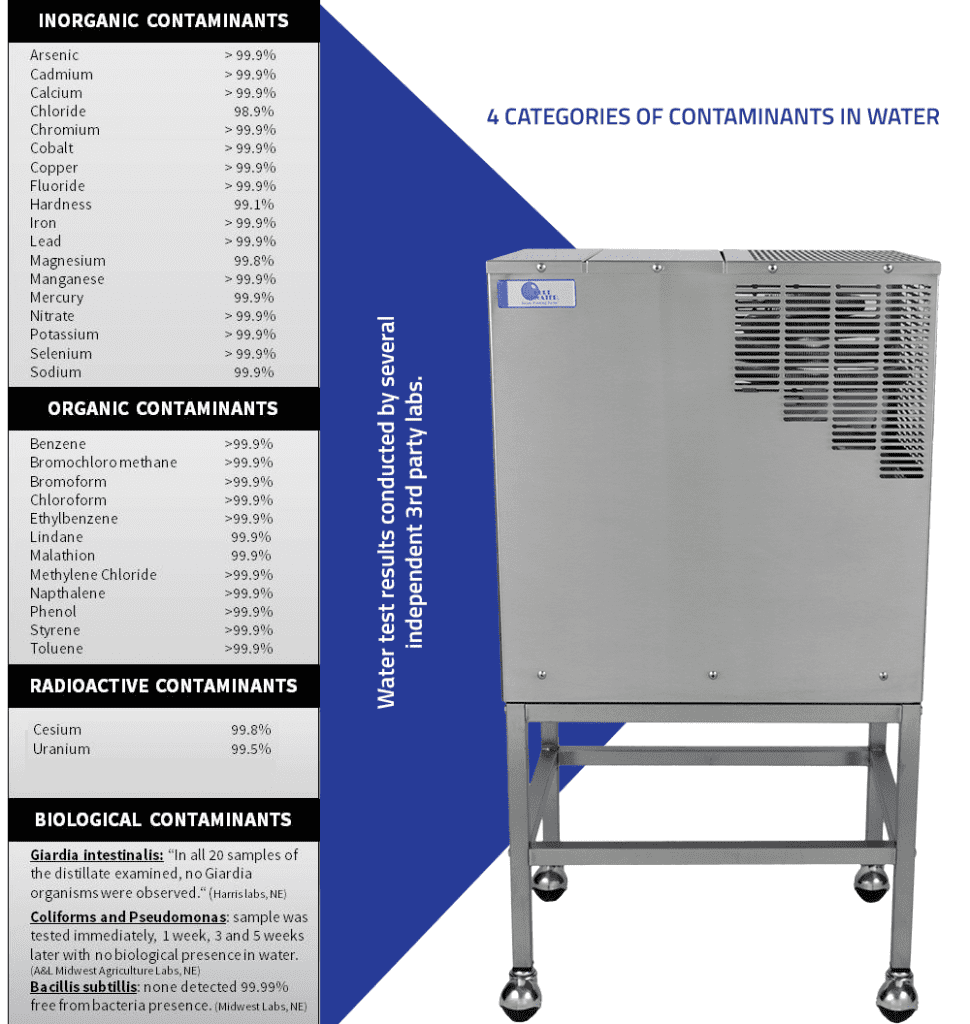What Is the Purest Water?
Distilled water is widely regarded as the purest form of water available for human consumption. Unlike tap, well, filtered, or even reverse osmosis (RO) water, distilled water undergoes a purification process that eliminates virtually all contaminants. This process involves boiling water to produce steam, then condensing that steam back into liquid form, effectively removing impurities such as minerals, bacteria, viruses, and chemicals. The result is water that is free from dissolved solids and other contaminants, making it ideal for drinking.
Distilled Water Is Natural Water
The process of distillation mirrors the Earth’s natural hydrologic cycle. In nature, water evaporates from oceans, lakes, and rivers, rises into the atmosphere, condenses into clouds, and eventually precipitates as rain. This cycle naturally purifies water by separating it from impurities and contaminants. Similarly, distillation involves heating water to create vapor, then cooling it to collect the condensed liquid, leaving behind contaminants. This method effectively replicates nature’s way of producing clean water, ensuring that the distilled water we consume is as pure and natural as the water produced by the Earth’s own processes.

The Benefits of Drinking Distilled Water Over Bottled Water
Choosing distilled water over bottled water offers several advantages:
- Cost-Effectiveness: Investing in a home distillation system is more economical in the long run compared to continually purchasing bottled water.
- Environmental Impact: Bottled water contributes significantly to plastic pollution, with millions of plastic bottles ending up in landfills and oceans annually. By opting for distilled water, especially when produced at home, you reduce reliance on single-use plastics.
- Purity Levels: While bottled water is often marketed as pure, studies have found that it can contain microplastics and other contaminants. Distilled water, on the other hand, is free from such impurities, offering a cleaner and safer option for consumption.
Common Contaminants Removed by Water Distillers
Water distillation effectively removes a wide range of contaminants, including:
- Lead: A toxic metal that can cause neurological issues and developmental delays.
- Arsenic: A carcinogenic element linked to various cancers.
- Nitrates: Can interfere with the blood’s ability to carry oxygen, particularly dangerous for infants.
- Chlorine and Chloramine: Disinfectants that can form harmful byproducts.
- PFAS (Per- and Polyfluoroalkyl Substances): Known as “forever chemicals” due to their persistence in the environment and potential health risks.
- Bacteria and Viruses: Pathogens that can cause waterborne diseases.
- Mercury: A heavy metal that affects the nervous system.
- Pesticides: Chemicals that can disrupt endocrine function and cause other health issues.
- Fluoride: While beneficial in small amounts, excessive fluoride can lead to dental and skeletal fluorosis.
- Pharmaceuticals: Residues from medications that can enter water supplies through various means.
By removing these contaminants, distillation provides a level of safety and purity that is difficult to achieve with other water purification methods.
Water Quality in the News
Recent events have highlighted the importance of ensuring water purity:
- Syracuse, New York: The city faced a crisis with dangerously high levels of lead in its drinking water, surpassing federal safety limits and posing serious health risks to residents.
- Richmond, Virginia: A major water treatment plant failure left approximately 230,000 residents without safe drinking water for nearly a week, underscoring vulnerabilities in water infrastructure.
These incidents demonstrate that contaminants can infiltrate water supplies without immediate detection, making proactive measures like using distilled water a prudent choice for safeguarding health.
Pure & Natural Drinking Water
Distilled water stands out as the purest form of water, free from a wide array of contaminants that can pose health risks. Its production process emulates the Earth’s natural purification system, offering a sustainable and effective means of obtaining clean water. By choosing distilled water, individuals can reduce environmental impact, avoid potential contaminants found in other water sources, and ensure a higher standard of water purity for themselves and their families.








